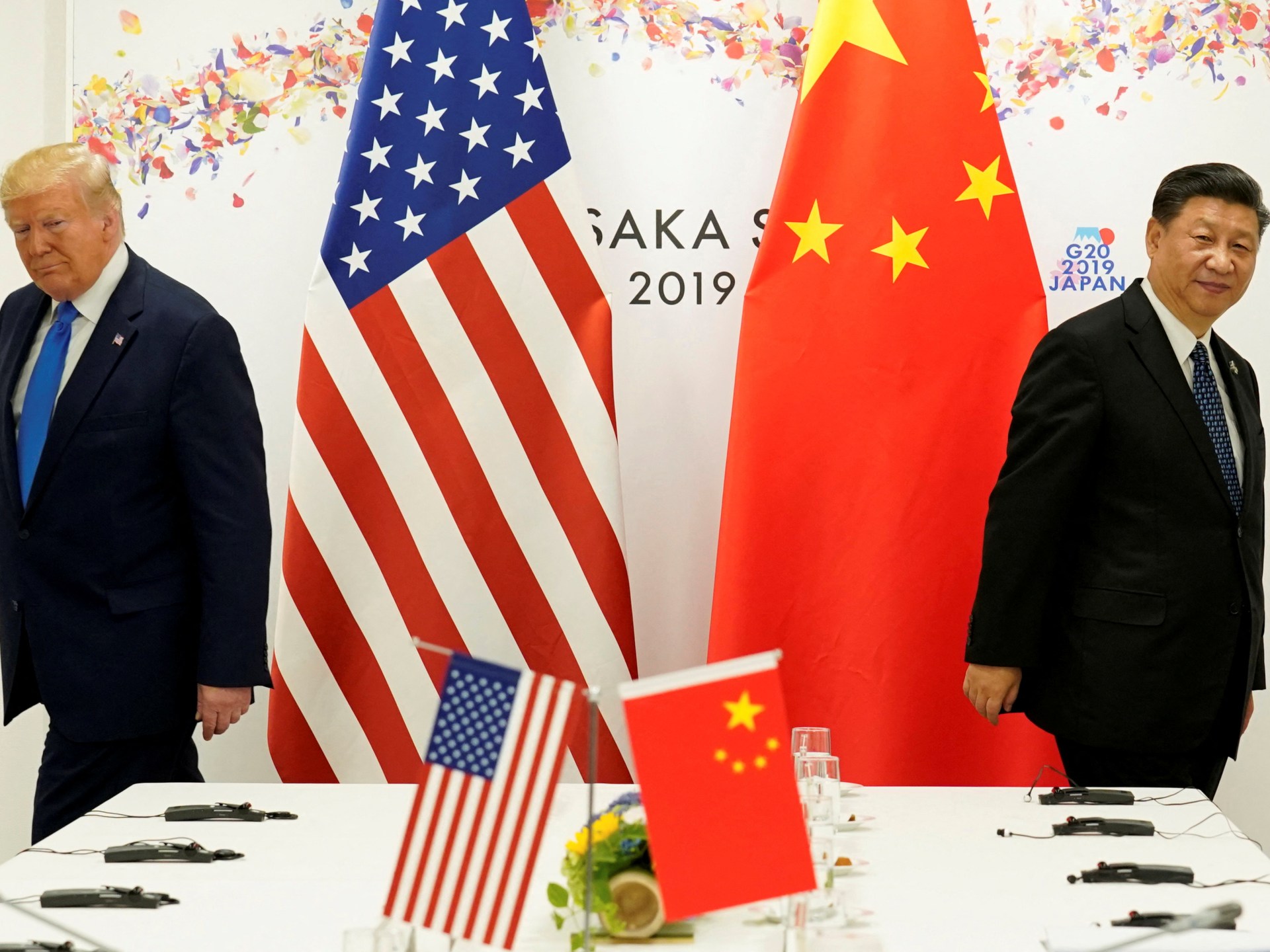Taiwanese experts say Beijing is unlikely to make the first move and may even demand conditions before negotiating with the United States as Donald Trump raises the prospect of a trade deal.
Trump has stated that his 145 percent tariff on China will “significantly decrease,” but that a reduction would depend on Beijing’s next steps.
Trump’s most recent statement, “We’re going to have a fair deal with China,” was quoted on Wednesday, igniting hopes for a cooling-down in the conflict.
However, given the significant stakes in its conflict with the US, China “can’t afford to be the side that initiates the first action because it can’t be seen as a capitulation to the Trump administration’s pressure campaign,” according to William Yang, a senior analyst for Northeast Asia at the International Crisis Group.
In consequence, China will continue to hold its current position until the US government makes some admirable concessions that will allow Beijing to consider entering negotiations and claim victory.
According to Yang, Beijing might even interpret Trump’s more optimistic rhetoric as a sign that “digging in its heels” is working.
Trump said on Wednesday that his administration was “actively” negotiating with the Chinese side, but they have not yet officially announced the start of trade negotiations.
Trump’s comments were refuted on Thursday by China’s Ministry of Commerce, claiming there were no trade talks between the parties.
He Yadong, a spokesman for the ministry, stated at a press conference that “any claims about the progress of China-US economic and trade negotiations are unsupported and unsupported.”
China has stated that talks are “wide open,” but it has vowed to continue fighting with the US if necessary.
Beijing’s messaging, which has mostly been communicated through the Ministry of Commerce and the Ministry of Foreign Affairs, has been tightly controlled and consistent in contrast to Trump’s off-the-cuff remarks and vacillating statements regarding the possibility of lowering his tariffs.
Zhiwu Chen, a professor of finance at the University of Hong Kong’s Business School, told Al Jazeera, “I would say that, at least on the surface, China has the upper hand.”
According to Chen, US Treasury Secretary Scott Bessent and President Trump have been signaling and acting in ways that further weaken their grip, Chen said.
According to Chen, “I think the statement really shows that he is anxious and panicking, while China has been quiet and muted,” in response to Trump’s assertion that he intends to lower his tariffs at some point.
In response to Trump’s trade speeches, China has imposed a 125 percent tariff on US exports, as well as announcing a number of other “countermeasures,” including restrictions on rare earth exports and restrictions on the number of Hollywood film releases in China.
Beijing’s cooperation on issues like controlling fentanyl exports could be halted if tensions keep rising.
In theory, it might cause harm to the US economy by dumping the country’s more than $ 760 billion in US government debt, which economists believe is unlikely given that it would have significant effects on the Chinese economy as well.
Beijing will want to hold preliminary meetings before any meeting between Chinese President Xi Jinping and US President, according to Tom Nunlist, associate director of tech and data policy at Trivium China. Trump prefers to negotiate face-to-face with world leaders.
Before the top leaders meet to confirm a deal, they will be looking to have it confirmed. Reaching out to Trump directly could seem like Xi is clinging to US pressure, Nunlist warned.
The US is generally viewed as the aggressor in this situation, and China has set its forceful tone to prevent further escalation, Nunlist said.
According to analysts, discussions would likely address a range of issues beyond just tariffs, especially now that Trump appears to have blinked in the standoff.
According to Dingli Shen, a Shanghai-based expert on international relations, “tech export controls and Taiwan” are potential concessions.
According to Marina Zhang, an associate professor at the University of Technology Sydney’s Australia-China Relations Institute, “standing grievances about how China is treated within the global system” may be on the table.
It includes issues relating to Taiwan, democracy and human rights, China’s political system, and its right to development in practice, Zhang told Al Jazeera.
Zhang claimed that US export controls on crucial technology might be in order as well as the potential blacklisting of Chinese tech companies like Huawei and SMIC.
China may also advocate for abolition of investment screening standards, particularly in delicate fields like semiconductors, clean energy, and advanced manufacturing. Another question that needs to be answered is “a de-escalation regarding Taiwan,” she said.
Beijing “would welcome less overt political signaling from Washington, such as restrictions on high-level official visits and arms sales,” Beijing said.
The wait might be worthwhile for Beijing if some of its longer-term objectives are met, according to Yang of the International Crisis Group.
At this point, China is engaged in more than just a trade negotiation. He said that the tariff standoff’s trajectory serves as a prelude to how US bilateral relations will develop over the next four years.
The Trump administration’s first step will be to lower the tariffs on imported Chinese goods, Beijing will want to see. The Chinese government’s willingness to engage in high-level trade negotiations with the Trump administration could depend on the level of potential tariff reduction.
Source: Aljazeera

Leave a Reply